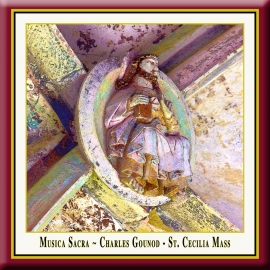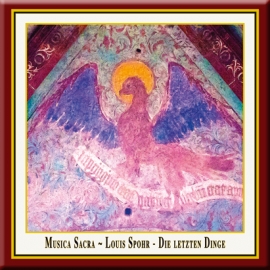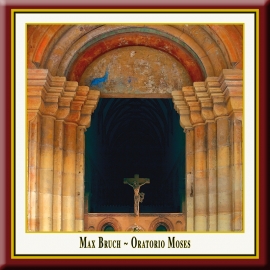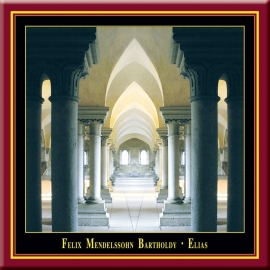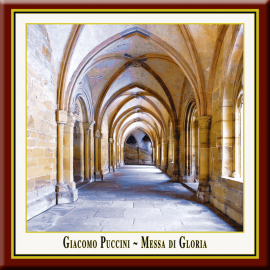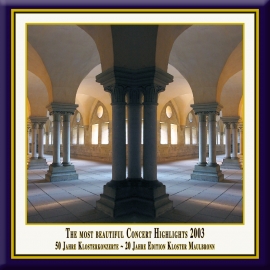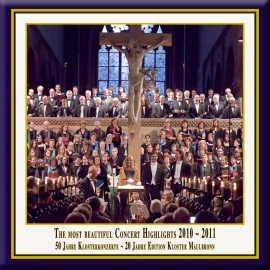Maulbronn Cantor Choir
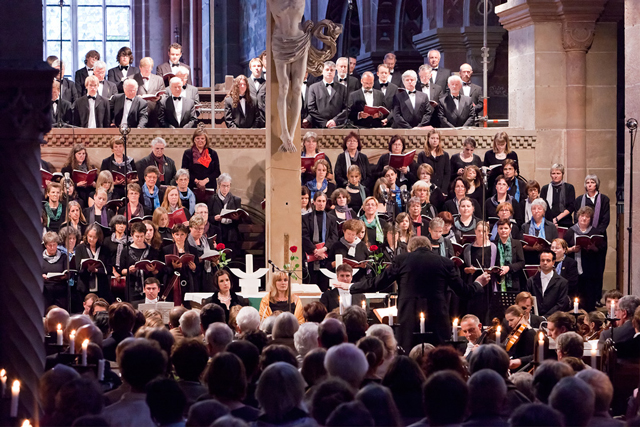
Choir
 The Maulbronn Cantor Choir (German: Kontorei Maulbronn) is the large oratorio choir of the monastery in Maulbronn. The choir was founded in 1948 as a federation of the Evangelic Church Choir Maulbronn and the choir of the Evangelic Seminar Maulbronn. In this tradition the choir is formed today with ambitious choral singers from the region and students and former students of the Seminar Maulbronn (gymnasium with boarding school). Over those many years of its existence the choir has performed the complete repertoire of popular oratorios and worked together with orchestras like the 'Southwest-German-Radio-Symphony-Orchestra Baden-Baden and Freiburg', the 'Central German Chamber Orchestra', the 'Southwest German Chamber Orchestra Pforzheim' or the 'Baden Philharmonic Orchestra'. Soloists of these performances were artists like Barbara Schlick, Maya Boog, Sandra Moon, Sophie Daneman, Marga Schiml, Elisabeth von Magnus, Hans Peter Blochwitz, Aldo Baldin, Marc Clear, Markus Brutscher, Peter Lika, Gotthold Schwarz and Ludwig Güttler. The German television station ZDF broadcasted a portrait about the Choir, and the choir has participated in live radio recordings for the SDR, SWR, Deutsche Welle and Deutschlandfunk.
The Maulbronn Cantor Choir (German: Kontorei Maulbronn) is the large oratorio choir of the monastery in Maulbronn. The choir was founded in 1948 as a federation of the Evangelic Church Choir Maulbronn and the choir of the Evangelic Seminar Maulbronn. In this tradition the choir is formed today with ambitious choral singers from the region and students and former students of the Seminar Maulbronn (gymnasium with boarding school). Over those many years of its existence the choir has performed the complete repertoire of popular oratorios and worked together with orchestras like the 'Southwest-German-Radio-Symphony-Orchestra Baden-Baden and Freiburg', the 'Central German Chamber Orchestra', the 'Southwest German Chamber Orchestra Pforzheim' or the 'Baden Philharmonic Orchestra'. Soloists of these performances were artists like Barbara Schlick, Maya Boog, Sandra Moon, Sophie Daneman, Marga Schiml, Elisabeth von Magnus, Hans Peter Blochwitz, Aldo Baldin, Marc Clear, Markus Brutscher, Peter Lika, Gotthold Schwarz and Ludwig Güttler. The German television station ZDF broadcasted a portrait about the Choir, and the choir has participated in live radio recordings for the SDR, SWR, Deutsche Welle and Deutschlandfunk.


